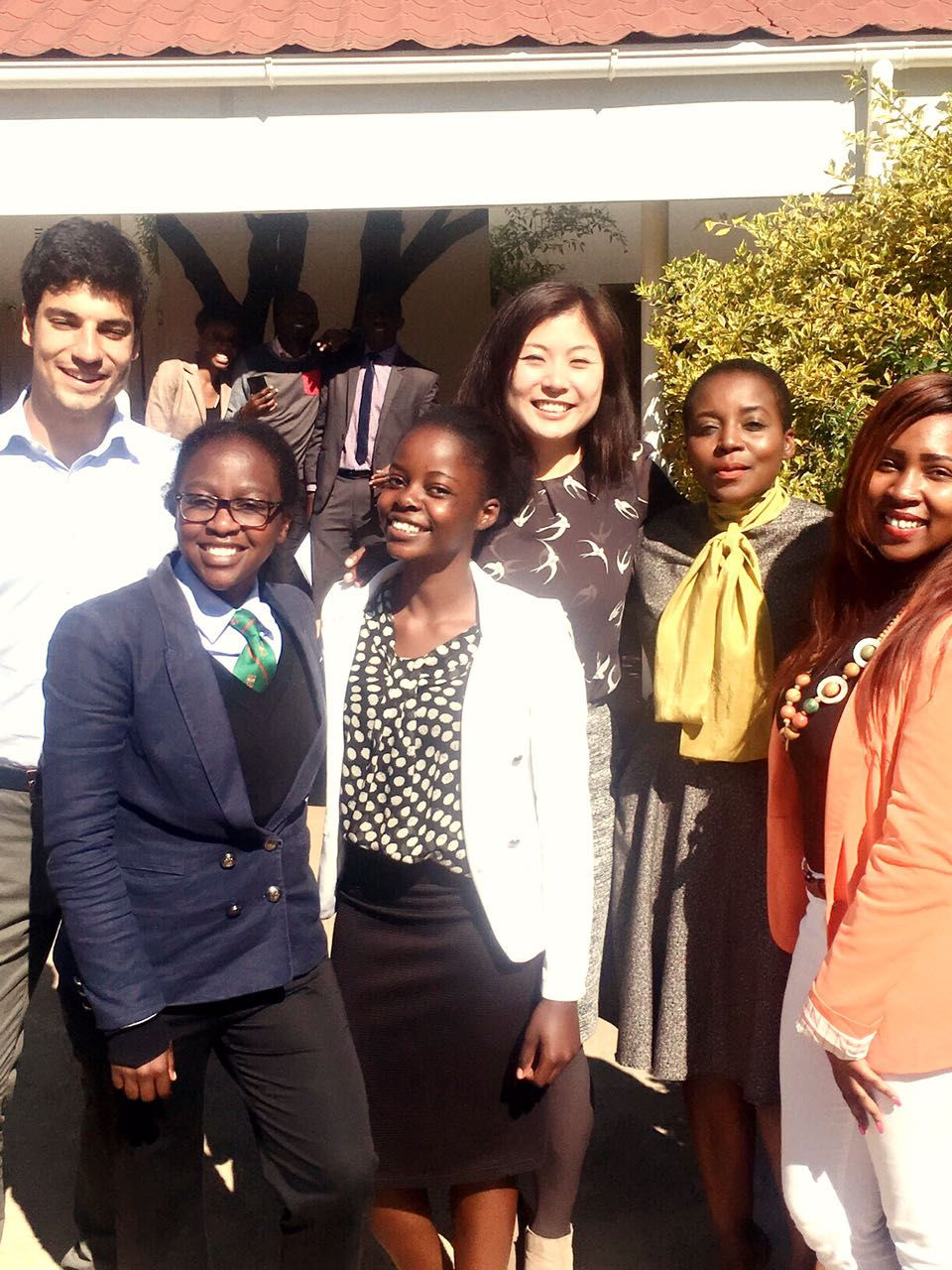Designed to ACT in Africa
- Jul 27, 2017
- 3 min read
"There is power in failing quickly"
Act in Africa

ACT in Africa entrepreneurship training class of 2017.
LESSON #1 Failing quickly is an art.
Chenesai brand celebrated its 1 year anniversary in July. It is within this year that I realise the void in the business knowledge that is required in building a sustainable and viable enterprise. The constant quest for knowledge, vision to grow and persistence to do better has been fundamental to my journey as a passionpreneur. I was sincerely honoured to be accepted into the ACT in Africa entrepreneurship program (http://actinafrica.com/).

Henri Lambert is the founder of Act in Africa as well as Apsara Capital LLP, a venture capital firm focusing on water and agriculture. He is a board member of WaterSmart Software Inc. He is also a founding shareholder of Monkfeet, a web-based platform enabling aspiring entrepreneurs to learn skills from professionals, academics, and other entrepreneurs.
A year into building the Chenesai brand has led me to seek efficient and effective ways to grow the vision of my enterprise.I was drawn to the ACT in AFRICA entrepreneur training program by the promise to learn 'design thinking' a thinking process that involves; discovery, interpretation, ideation, experimentation and evolution in problem solving.
LESSON #2 Discovery is a gift to idea formulation

Diverging "Design thinking". From Left to right, Chenesai and Yi the facilitator during the program. She is also the vice president and regional program manager for Wells Fargo Bank's Financial Analyst Program also MBA student at UC Berkeley Haas School of Business.

Ethnographic work in Mbare assisted by facilitator YI
The 3-week program facilitated by a team of MBA students from UC Berkeley and London Business School was a vigorous and practical training on the design thinking process. These highly qualified facilitators made the experience superior. Their varied academic backgrounds and varied work experience brought meaningful flavour to the 21-day training program.
LESSON #3 Train the mind to think in different patterns.

A short break time sun with Facilitator Zac MBA student of London Business School and Yi.

Getting ready to go in the field with the team and facilitators.

Getting ready to go in the field to do some testing. From left to right facilitator Sabestian leading Business Development and Finance at Project YX, a Silicon Valley start up and Dan vice President for growth at IDEA Public School.
The program was practical intensive, we spent most of the time doing field work ranging from observations to ethnographic tests to collect data in order to meaningfully evolve our ideas.
LESSON #4 Entrepreneurs get their hands dirty.

Some mud drama on a field work trip to ZIFM
Entrepreneurs are problem solvers. The ACT training emphasizes that notion by thoroughly teaching on the merit of understanding and observation in design thinking. Observation is crucial to creating novel and sustained solutions.
LESSON #5 Pure observation births novelty

Ideating "Design Thinking". Right to left Tofara, Dave, Tawanda and Clint.
Reframing your ideas is the surest way to prototyping a winning solution. The exercise of reframing was gruesome and at times draining. At the end of it all, I am sold on the proficiency of diverging and converging of ideas during the ideation process.

The 'Spaghetti Challenge' from left to right Chenesai, Wilbrod, Lee Anne and Angela.

First round of pitching. Every minute counted.

Final Pitch with Group Ace members Lee Anne Tsepo and Rufaro.
Finally, after working in our groups for 3 weeks (did I tell you our hours...7:45 am- 6 pm Monday to Saturday ) we finally put it all to test and created a pitch deck! Albeit the brilliant teaching and guidance creating a pitch deck and pitching was far from easy, thankfully the training made it manageable.
LESSON #6 Ideate the process.
The ACT in Africa program is a superior knowledge sharing platform that is relevant to preparing entrepreneurs to develop ideas that build lasting enterprises.

Showing off our UC Berkeley shades with some of the facilitation Team MBA students of UC Berkeley Haas School of Business and London Business School.

The prototyping exercise.

Team Ace. From left to right Lee Anne, Angela, Chenesai, Rufaro and Wilbrod.

Field work at Stimulus from left to right Lee Anne, Angela, Chenesai, Rufaro and Wilbrod.
Always start with a problem, ' How might we .......'. Define the problem clearly. Do not rush to a solution rather allow the 'design thinking' process to lead you to a viable solution. Keep your mind open during the process. Pivot from the premise if the process leads you to that.
If you want to learn more about design thinking, resource https://dschool.stanford.edu/resources-collections/a-virtual-crash-course-in-design-thinking and https://hbr.org/2008/06/design-thinking
The ACT in AFRICA program surpassed my expectation. It has moulded a new perspective for my entrepreneurial adventure. The 'design thinking' tool is indeed the cherry on top.
Dream big!



Comments